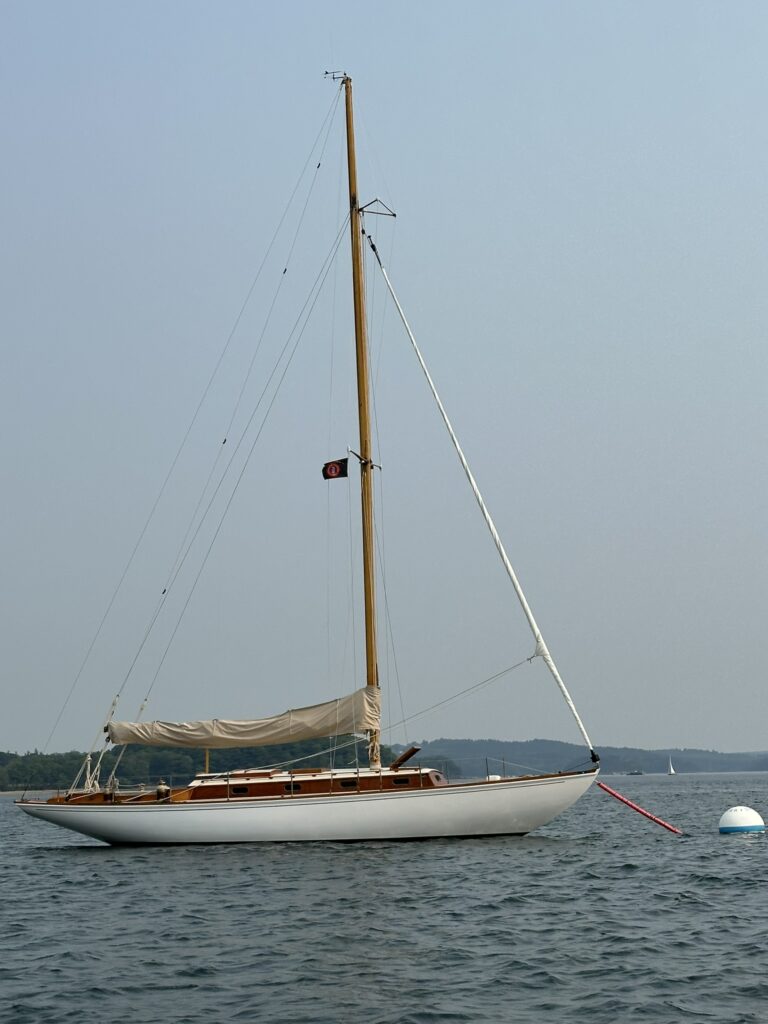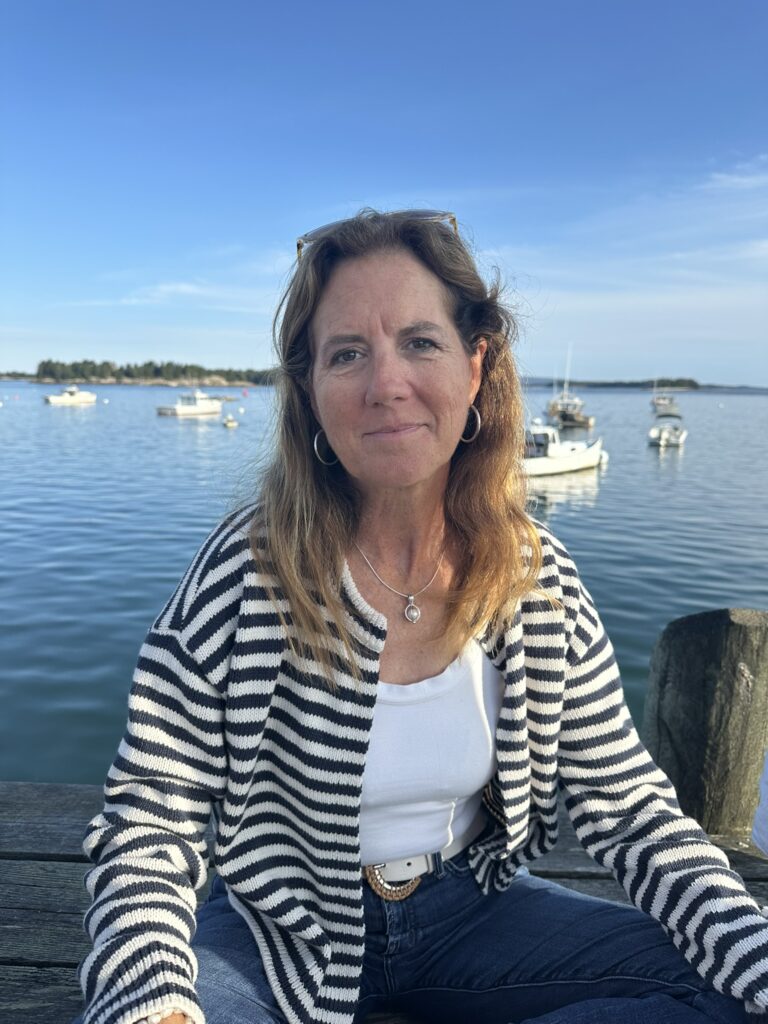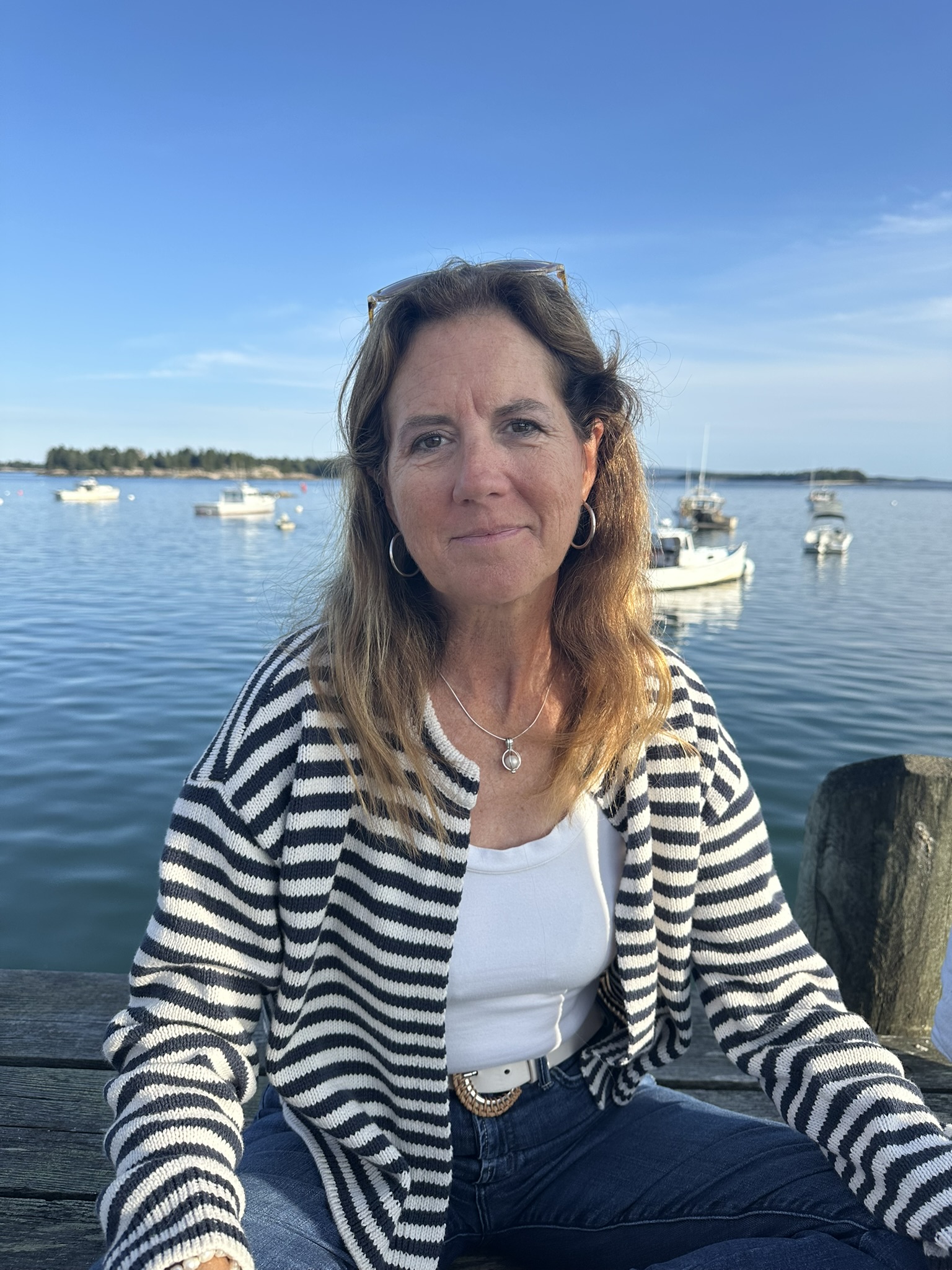The Aquatic Harp
We were gliding along on Celia, her very name echoing the whisper of movement as we sailed through glassy waters. We sat at ease, urging the boat forward with as little disturbance as possible.
The wind had softened, the faintest zephyrs filling our sails, invisible on the Penobscot’s mirror surface. As we moved silently forward through the bay, the rain began.
Fine droplets fell on the sea, each one a solitary note in an empty concert hall. Without competition from the rustle of foul-weather gear, the murmur of wind or waves, the bow’s wake, or even rain on trees, earth, or granite, the patter on the bay gloried in its solo, a sound I had never heard so purely before.
Our voices, hushed as the wind calmed, fell silent, and the music of raindrops on the water’s skin claimed all the audible space with exquisite subtlety. It was as if a sound mixer had turned down everything else, leaving the rain as harmony, melody, chorus, and bridge.
The tiny beads striking the deep played like the strings of an aquatic harp, each note shimmering with an eighty-foot resonance beneath the hull, as though the bay itself cradled the instrument, playing a piece I knew I might never hear again.

Blessed by Innocence
She knelt on the seat of her chair, hanging over the back, looking at me. Blank face. Steady gaze. Feeling her eyes on me, I flicked mine from my husband to this somber child.
I smiled. She didn’t smile back. I gave a small wave. Her gaze didn’t waver.
I reached down and cradled the sharp shell of a Damariscotta River oyster. I brought it to my lips, slurping the wet, briny gem as gracefully as I could, knowing I was being watched.
I told my husband about the first time I’d eaten an oyster — what I’d been told, anyway. There’s a picture of me at around two, in a pale yellow quilted bathrobe, cheeks full, debating whether I liked the mouthful I hadn’t yet swallowed.
This girl was older than I’d been in the picture, and eating pizza, not oysters. She kept watching me off and on throughout dinner. Every now and then, I’d catch her eye and smile. Her serious appraisal never changed.
As she and her parents got up to leave, she walked straight to our table, clutching her special cuddly. Her father stood just behind her; her mother hovered close.
With the same unsmiling, purposeful expression, she asked my name. I told her, then asked hers. She paused, still studying me, and then told me slowly.
We exchanged a few words about dinner and her visit to Stonington. When her mother said it was time to go, she gave me one last look, stepped forward, and wrapped her arms around my neck.
I hugged her back, the fine, fair strands of her hair soft against my cheek. For a heartbeat, the room seemed to hold still. Then she let go and walked away.
I sat there, warmed and wordless, as if I’d been quietly blessed.

The Human Touch
As he described his coastal cruising with a group of men from west to east of Mount Desert, I imagined the quiet harbors, craggy points, rocky islands, and iconic lighthouses. We sat in the afternoon shade of the porch, sipping cool drinks. I asked him what stood out to him most. He didn’t waver and responded promptly with two experiences.
In the end, it wasn’t the lines of the boats, the smell of the sea, or the sound of the rocks that stayed with him. It was the people. We cherish the sweeping vistas, the craftsmanship, the strength of nature – but it’s sharing them with others that keeps our minds young and our hearts full.


Comments are closed